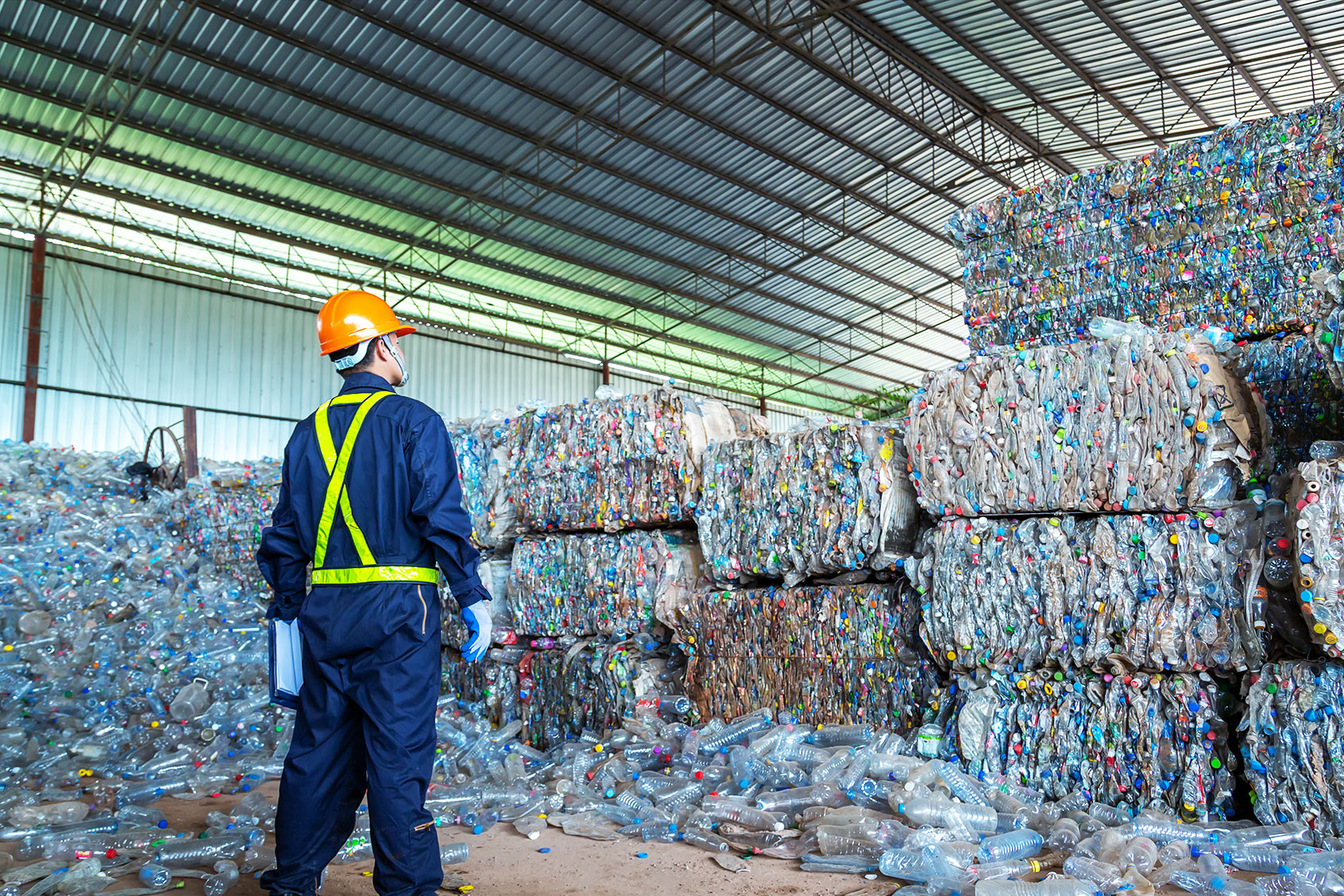Children in Western countries have long been taught the virtues of recycling. Because plastic products never decompose on their own, kids are instructed to dispose of them in specially-designated bins so they can be reused. The thinking is that if plastic products are continuously repurposed instead of being simply thrown away, it will lessen the plastic pollution crisis currently choking off life on this planet.
“Many people think that more plastic recycling will resolve the plastics crisis, but plastics are made with toxic chemicals… so recycling plastic is recycling toxic chemicals.”
Yet a new report by Greenpeace USA reveals that recycling plastic not only fails to help the problem — it may actually make things worse. More significantly, the report reviews dozens of previous studies about plastic pollution to arrive at a sobering conclusion: If humanity does not get plastic pollution under control, the entire Earth ecosystem could be placed in grave danger.
Foremost among the report’s notable statistics: Less than 9% of global plastics even wind up getting recycled, according to the United Nations Environmental Programme (UNEP), indicating that the programs created to encourage plastic recycling have been minimally effective. Even if they were being more widely utilized, however, they do not offset the tons of new plastic products being created every year. Finally, there is evidence that the process through which plastics are recycled may actually make them more hazardous to humans who are subsequently exposed to them.
“Plastics contain more than 13,000 chemicals, with more than 3,200 of them known to be hazardous to human health,” the report explains. “Moreover, many of the other chemicals in plastics have never been assessed and may also be toxic. Recycled plastics often contain higher levels of chemicals that can poison people and contaminate communities, including toxic flame retardants, benzene and other carcinogens, environmental pollutants like brominated and chlorinated dioxins, and numerous endocrine disruptors that can cause changes to the body’s natural hormone levels.”
Want more health and science stories in your inbox? Subscribe to Salon’s weekly newsletter The Vulgar Scientist.
“Without dramatic reductions in plastic production and eliminating toxic chemicals from plastics, we risk a significant global ecological disruption.”
Dr. Therese Karlsson — a Science Advisor with the International Pollutants Elimination Network (IPEN), many of whose studies are featured in the report — spoke with Salon by email about its broader implications.
“The studies show that waste workers are exposed when they collect plastics, communities near recycling facilities are exposed from air and water pollution and consumers who use recycled plastic products face toxic exposures,” Karlsson told Salon. “It’s also important to note that the science shows that recycled plastics can be even more toxic than virgin plastics. Thus, the science directly contradicts strategies to resolve the plastics crisis through more recycling.”
Karlsson pointed out that the chemicals and wastes pollution crisis is, along with the climate change crisis and the biodiversity crisis, one of the “three planetary crises” facing Earth because of human activity. “The evidence shows that we have exceeded the planetary boundaries for chemical and plastics pollution, meaning that production and emissions may be threatening the stability of the entire global ecosystem,” Karlsson explained. “Without dramatic reductions in plastic production and eliminating toxic chemicals from plastics, we risk a significant global ecological disruption.”
Recycling plastics does not solve this problem. Indeed, as the report breaks down, there are “three uncontrollable poisonous pathways of plastic recycling,” including how virgin plastics made with toxic chemicals can transfer those chemicals into the recycle products, how plastics absorb dangerous chemicals through direct contact and absorption and how when “plastics are tainted by toxins in the waste stream and the environment and are then recycled, they produce recycled plastics that contain a stew of toxic chemicals.”
“Many people think that more plastic recycling will resolve the plastics crisis, but plastics are made with toxic chemicals, and there is no magic recycling box that makes these chemicals disappear — so recycling plastic is recycling toxic chemicals,” Karlsson pointed out. “We therefore urgently need to ensure that toxic chemicals are phased out from plastics and that the overall production of plastics is decreased.”
Dr. Shanna Swan, a professor of environmental medicine and public health at Mount Sinai School of Medicine in New York City, told Salon by email that she is “in complete agreement” with the report. Swan is a pioneering researcher in the subject of plastic pollution and human health; her book “Count Down: How Our Modern World Is Threatening Sperm Counts, Altering Male and Female Reproductive Development, and Imperiling the Future of the Human Race” broke new ground in documenting plummeting human fertility rates and their likely connection to plastic pollution. In particular, Swan has studied endocrine disruptors like phthalates and bisphenols, as well as other chemicals that seem to interfere with healthy human reproductive development.
“This report is produced by Greenpeace, which is advocating for a legally binding Global Plastics Treaty which I strongly support,” Swan told Salon. The report urges that “the Global Plastics Treaty negotiations in Paris (May 29 to June 2) must focus on capping and then phasing down plastic production.”

